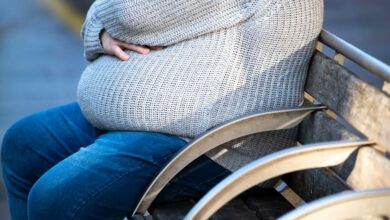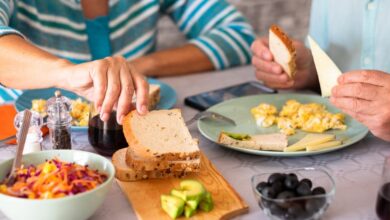
MyFitnessPal is one of the most positively reviewed apps in the Apple and Android app stores, they write in the Annals of Internal Medicine. The free app has more than 50 million registered users. In addition to allowing users to track calories and exercise, the app allows people to set goals, integrate data from other devices and receive feedback from a social network.
Of the 212 people in the study, half were told about the app; research assistants helped download the application on their smartphones and checked in a week later to help with technical problems. The other half were told about the study, but they were not told the name of the app. Instead, they were told to choose their own activities to lose weight.
Overall, those who used the app were happy with it, but use dropped sharply after the first month, the researchers found.
Merely recommending a calorie-counting app to overweight people and giving them access to it on their phones does not lead to weight loss, according to a new study.
The findings don’t mean calorie-counting apps don’t work for people who want to lose weight, said the study’s lead author, Dr. B. Yoshi Laing. Instead, simply recommending it does not lead to weight loss, compared to people who don’t get recommendations.
“This just shows us again that losing weight is really tough,” said Laing, a primary care physician and director of the improvement program at the Martin Luther King Jr. Outpatient Center in Los Angeles. “Apps like this can be a powerful tool for people who are ready to track calories, but it’s not for everybody to lose weight.”
Additionally, there was no significant difference in weight or blood pressure between the two groups after six months. More people in the app group reported increased use of a daily calorie goal, however.
While just introducing the app to people in general did not lead to overall weight loss in the group, Laing said there was a subgroup of people who appeared to use it successfully.
In fact, the person who used the app most also lost the most weight – about 30 pounds. That person was in the comparison group, which wasn’t told about the app.
“There will be a subset of people who use it and lose more weight,” Laing said, adding that he recommends MyFitnessPal to patients who want to lose weight and enjoy smartphone apps.
The suggestion that app use correlates with results is echoed in the company’s own data, said Rebecca Silliman, a spokesperson for MyFitnessPal, Inc.
“Eighty-eight percent of people who log in for seven days will lose weight,” she said. “The more you use it, the more weight you lose.”
Merely recommending the app may not lead to weight loss if people are not motivated to track calories, “because tracking calories is a fair bit of work,” Laing said.
“You have to be committed to spend five minute to track calories per meal,” he said.
Mike Lee, the founder and chief executive officer of MyFitnessPal, Inc., said the company’s own data and market research shows people need to be willing to make a change.
“MyFitnessPal is not a magic bullet,” he said. “We’re going to do everything we can to help you lead a healthy lifestyle, but you have to meet us halfway.”
Silliman said the app has changed since the study was submitted for publication over a year ago.
“I think obviously we were hoping just introducing MyFitnessPal would be enough, but we’re going to keep working hard at that,” Lee said.




